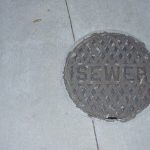Let’s face it; no one wants to call a plumber to visit their home even if it’s essential to repair a leak. But, every now and again we are likely to need a local certified plumber to carry out some regular maintenance or an essential repair. When plumbing systems fail, it can cause water leaks that can be extremely destructive in your home and this will cost thousands of dollars to fix. In this article, we will look at six ways that you can extend the useful lifespan of your home plumbing system.
- Find a Great Local Plumber
When a drain line has become blocked, and the toilet is overflowing, or a water leak is gushing water all over your floors; it’s not a great time to be researching a plumber. In these types of situations, many people will not hesitate to call anyone that can make their plumbing problems go away and this can lead to them hiring the wrong person. Like any industry, plumbing has good and bad people, and you want the best plumber on your side in an emergency. It’s a great idea to research your plumber when you don’t need one, and this allows you to research them properly at your leisure. Then when you need to call them in an emergency, you will already know that the best local certified plumber is on their way to help.
- Always Shop Around for Plumbers
If you’re getting a new plumbing fixture installed or you need an essential repair, it’s a great idea to shop around for the best deal. Always take the time to get several estimates from local plumbers before you make a final decision. Averaging out these estimates should help you to discover a fair price for the work that needs to be done. It may be tempting to simply choose the cheapest option, but this is often a false economy that you may regret later. The best plumbers rarely charge bargain basement prices and those that can afford to do that may be cutting corners. If you want good quality work at an affordable price choose a plumber with an excellent reputation that charges fair prices. Most reputable plumbers are looking to build long term relationships with their customers, and they will treat them fairly.
- Get All the Work Done at the Same Time
Most plumbing emergencies occur at inconvenient times, and it’s hard to avoid a call out fee and other charges. But, if you have some advance warning that something is going wrong, you have far more control over the situation. This will allow you to meet with your plumber and discuss any problems with your system. The plumber may advise you that there is an underlying cause of your plumbing problems and/or they may have discovered another potential problem that needs attention. A plumbing visit costs money, so it makes sense to get these jobs done at the same time to avoid paying for another visit later. If you combine together several plumbing jobs into a single visit, you can save a significant amount of money on your repair bill.
- Put Together a Basic Plumbing Toolkit
Let’s face it; many of us don’t have enough plumbing knowledge to safely tackle larger plumbing tasks. But, there are some minor repairs that can be carried out by a DIY enthusiast and many clogs can be cleared by an amateur. Get a toolbox for plumbing tools to carry your plumbing kit to different rooms in your home. Then get a good home plunger, an adjustable wrench, a screwdriver, some plumbers tape, and a basic augur. Along with a little caulk when you need it, this should be enough to carry out several plumbing tasks in your home. One of the easiest things to do is clear a blockage in a drain manually without using chemical cleaners that can damage your pipes. Try the plunger first, put it over the drain and push it up and down to create a vacuum that will clear the clog. Don’t be too aggressive as you could force the clog further down into the drain and if this doesn’t work try your augur. An augur is a flexible length of tube with a drill bit on one end and a crank on the side. This can be fed into the drain until it bumps up against the clog, then you gently turn the crank to drill into the clog and break it apart.
- Prevent the Formation of Clogs
Some clogs can be easily removed using the methods shown above, but others can be very hard to remove. A clog is formed when soap scum combines with hair, grease, fats and other debris to form a solid lump of material. Over time more materials will adhere to this mass, and it will swell to fill the inside of the drain pipe. These types of clogs can be prevented by adding drain covers to each drain to prevent materials from entering the drain pipes. It’s also a great idea to talk to your family about what they can and cannot flush away in your toilets. Only toilet paper and human waste should be flushed away, other items, such as kitchen paper, “flushable wipes,” hygiene products and other materials should be kept out of the toilet. Avoid placing items, such as coffee grinds, bones, grease, fat, and eggshells in your garbage disposal unit.
- Help the Plumber to be Time Efficient
Time is money when you hire a
local certified plumber, and you can reduce those costs by helping them out. The plumber is on the clock as soon as they reach your home so it’s a good idea to clear the area where they will be working, so they don’t have to do it. If there are kids or pets in the home banish them to a different part of the home, so they don’t get in the way and slow the plumber down. With a little forethought, you can cut down the time of the appointment considerably and save money at the same time.
By Giovanni Longo President Flood Brothers Plumbing
Giovanni Longo is a 3rd generation master plumber who has been practicing his craft and trade in the greater Los Angeles area for well over a decade and a half. A plumbing and hydraulics-engineering innovator, Giovanni’s particular world-class expertise focuses on dealing with challenging sewer system designs as well as resolving complex commercial and residential draining issues. As a certified Flood Mitigation expert, he is also well versed in a wide variety of water damage and remediation solution.





